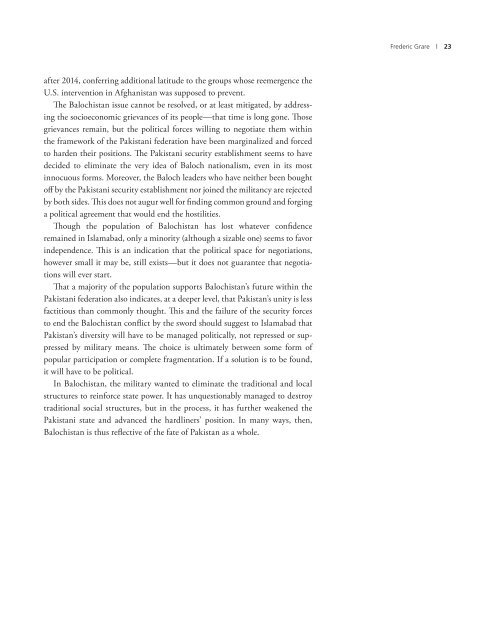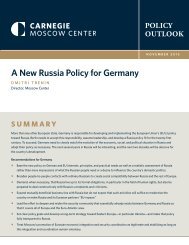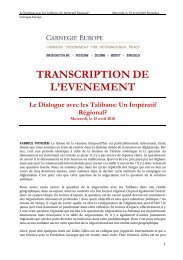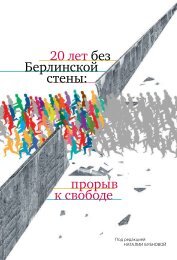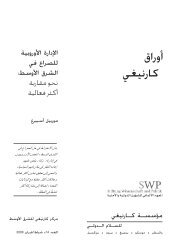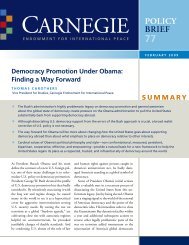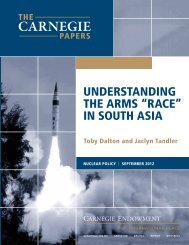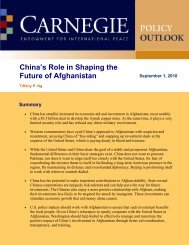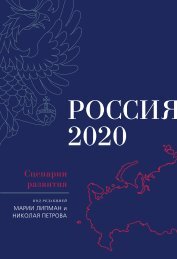BALOCHISTAN - Carnegie Endowment for International Peace
BALOCHISTAN - Carnegie Endowment for International Peace
BALOCHISTAN - Carnegie Endowment for International Peace
Create successful ePaper yourself
Turn your PDF publications into a flip-book with our unique Google optimized e-Paper software.
after 2014, conferring additional latitude to the groups whose reemergence the<br />
U.S. intervention in Afghanistan was supposed to prevent.<br />
The Balochistan issue cannot be resolved, or at least mitigated, by addressing<br />
the socioeconomic grievances of its people—that time is long gone. Those<br />
grievances remain, but the political <strong>for</strong>ces willing to negotiate them within<br />
the framework of the Pakistani federation have been marginalized and <strong>for</strong>ced<br />
to harden their positions. The Pakistani security establishment seems to have<br />
decided to eliminate the very idea of Baloch nationalism, even in its most<br />
innocuous <strong>for</strong>ms. Moreover, the Baloch leaders who have neither been bought<br />
off by the Pakistani security establishment nor joined the militancy are rejected<br />
by both sides. This does not augur well <strong>for</strong> finding common ground and <strong>for</strong>ging<br />
a political agreement that would end the hostilities.<br />
Though the population of Balochistan has lost whatever confidence<br />
remained in Islamabad, only a minority (although a sizable one) seems to favor<br />
independence. This is an indication that the political space <strong>for</strong> negotiations,<br />
however small it may be, still exists—but it does not guarantee that negotiations<br />
will ever start.<br />
That a majority of the population supports Balochistan’s future within the<br />
Pakistani federation also indicates, at a deeper level, that Pakistan’s unity is less<br />
factitious than commonly thought. This and the failure of the security <strong>for</strong>ces<br />
to end the Balochistan conflict by the sword should suggest to Islamabad that<br />
Pakistan’s diversity will have to be managed politically, not repressed or suppressed<br />
by military means. The choice is ultimately between some <strong>for</strong>m of<br />
popular participation or complete fragmentation. If a solution is to be found,<br />
it will have to be political.<br />
In Balochistan, the military wanted to eliminate the traditional and local<br />
structures to rein<strong>for</strong>ce state power. It has unquestionably managed to destroy<br />
traditional social structures, but in the process, it has further weakened the<br />
Pakistani state and advanced the hardliners’ position. In many ways, then,<br />
Balochistan is thus reflective of the fate of Pakistan as a whole.<br />
Frederic Grare | 23


